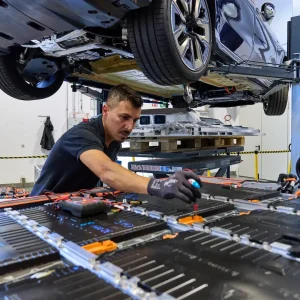When leading industry figures from the worlds of leasing and car manufacturing are highlighting the sluggish demand for diesel, we should all take note.
There are several good reasons why it’s worth listening to the views of Jon Walden, managing director of Lex.
For starters, he’s been around a long time (sorry, Jon) and knows the industry inside out and backwards. Second, he runs by-far the biggest leasing and contract hire operation in the UK. Third, and perhaps most importantly, his thoughts are always delivered in a considered and measured way; Jon is not a man for a quick headline.
All of which is why I was keen to follow up a comment he made in a recent exclusive interview for BusinessCar: “There has been a move to diesel, but that’s stopped and I don’t see it going any further”.
Even more so when, just a couple of days after I read that, the marketing director of Ford, Mark Ovenden, suggested to me there was anecdotal evidence that RVs of diesel cars were starting to slip back at auction. If these two movers and shakers of the business car world are starting to see a weakening in diesel demand, then that is going to affect us all.
What seems to be happening here is that diesel car demand, both in the business car sector and in the used car market, has reached its natural level. So the growth rates that we have experienced over the past five or six years (two business car lease cycles) are now stopping.
Walden explained to me: “Before 2001 and the tax changes, about 25% of the cars we delivered were diesel. That proportion then rapidly changed and levelled out around 65%. Now we have got 60% to 65% diesel and it’s not going any further.”
According to Walden, that increased supply of diesel cars into the used car market has also resulted in a steady reduction of any residual value premium. In round numbers, diesel cars attracted a 12% to 15% premium six or seven years ago; that has now fallen to 8% to 9% and the erosion seems to have stopped.
That view is supported by actual disposal values achieved at auction. Analysis from Manheim shows both diesel and petrol residuals for family cars slipping at the same rate and, apart from a blip in May, the same is true in the compact executive sector.
“The price differential between diesel and petrol remains fairly constant at around £1000 earlier in the year, with a subtle narrowing towards the end of the second quarter,” confirms Tony Gannon, communications director at BCA.
But, with diesel now consistently 12p to 15p a litre more than petrol at the pumps, the supply/demand equation could be finely balanced. I don’t know about you but my neighbours with diesel cars are beginning to be seriously concerned about the cost of filling up. And, once they start doing the maths, the attraction of diesel starts to slip away.
“Our customers are not yet questioning the costs; they are more concerned about the macro-economic climate,” says Walden. “But I am sure people will eventually take a look.”
No doubt he, and the other contract hire bosses, will be watching the market with interest. Any sign of a slackening of demand, rather than the levelling off, will require a change of strategy.





